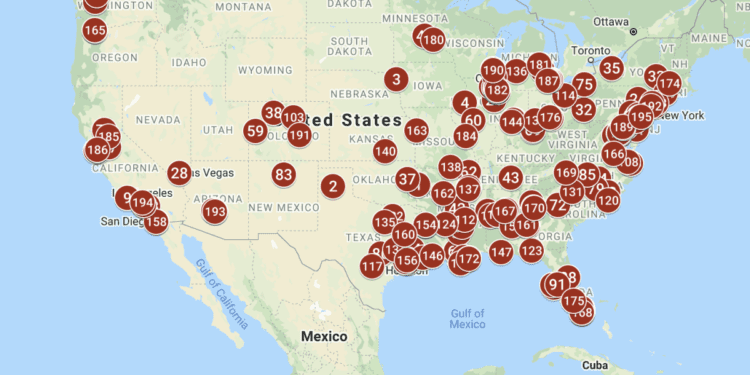Violence is never an isolated act. It’s always in response to something.
The data doesn’t mention this. There’s no way to account for it in the numbers. Gun violence is displayed by the number of murders, the prevalence of attacks, or of some other act – all in isolation. But these numbers, as horrific as they are, tell us little beyond what we already believe.
Gun violence is increasing. The data is clear enough. But it’s the interpretation of the data that we can’t figure out. Some argue we need fewer guns. Others will argue for the opposite, that we need more guns – you know, the good guy with a gun thing.
What we need is context. We compile statistics on gun violence, but we never contextualize it to broader socioeconomic conditions in which gun violence takes place. It’s like observing the number of patients diagnosed with diabetes, but never keeping track of their food consumption.
Pachina Fletcher, reporter at the Southland Journal, an independent news outlet covering the Southside of Chicago, said it best: “These numbers don’t mean much to us and sometimes they feel made up. They don’t represent who we are or our communities.”
When we try to interpret data on gun violence, to make sense of the numbers, we’re left with incomplete solutions that are subject to the whims of whoever’s opinion carries the most sway. But opinions are not facts, just like data are not interpretations. They relate, but there are distinct differences, though we forget them at times.
These differences are critical to our understanding of gun violence. Appreciating them is an essential step in drawing accurate conclusions out of the numbers. Nearly all data on gun violence is observational. We take some outcome, whether it’s homicide rates or gun purchases, and trend it. If the lines match up, we claim cause and effect. But correlation is not causation, and data observed over time cannot prove anything other than whatever factors were measured have some relationship. That distinction matters when we try to draw conclusions.
“A gun is a tool”, said Dr. Kyle Fischer, policy director at Health Alliance for Violence Intervention (HAVI). Dr. Fischer, who grew up in rural Green Bay, WI and now practices emergency medicine in downtown Philadelphia, PA cautions against making assumptions about gun violence data.
When we say gun violence is increasing, we really can’t say whether it’s because of the number of guns available per capita. We can’t verify that more guns lead to more gun violence. Intuitively we may think that, but the data doesn’t prove that. That’s the difference. And it’s why we can’t find common ground on the gun debate – there’s no factual basis to agree.
But we can start by giving data context. Cross reference it with broader socioeconomic trends to find relationships that may not seem intuitive. For example, when we look at trends in gun violence and gun ownership, and then look at unemployment rates over that same time interval, we find some interesting patterns. In 2017, a study out of Northwestern University found rising unemployment rates lead to higher chances of school shootings.
Of course, this doesn’t mean lower unemployment will lead to fewer gun violence against children, but it reveals a correlation. If we keep doing this, continue trending more socioeconomic factors with gun violence statistics, we’ll have a pattern of relationships. We’ll see associations between things we thought could be related, but now see how strongly they connect.
Eventually, the correlations will tell a comprehensive story. Not an absolute story of cause and effect, but a story where enough of the pieces line up. Correlations show how things relate, which provides meaningful context when enough correlations are observed side by side.
Think of the Framingham Study. It’s one of the longest and most famous observational studies in American medical history. Now spanning three generations, the study observes people in the town of Framingham, MA to see which health risk factors correlate with adverse clinical outcomes. The study monitors things like body weight, blood cholesterol, and blood glucose, among others, to determine which factors lead to events like a stroke (cerebrovascular accident) or a heart attack (myocardial infarction).
The Framingham study isn’t trying to prove one thing directly results in another. It’s verifying that certain things relate: so when one is present, look out for the other. That logic applies just as well to gun violence.
Most of what we observe in life is actually correlative. We just think it’s cause and effect. But when you put together enough correlations, enough factors that affect one another, you’ll get a clear enough picture of how things relate. It’s not cause and effect, but it’s close. When it comes to gun violence, that may be a good start.















